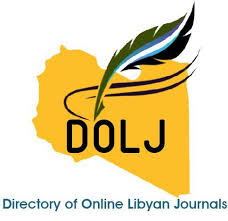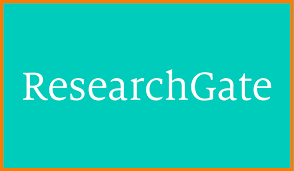Assessment of Libyan Population Knowledge about the Environmental Carcinogens: Cross-Sectional Study
DOI:
https://doi.org/10.54361/ljmr.16-2b01Keywords:
Cancer, cancer knowledge, environmental carcinogens, risk factor, awareness, Libyan populationAbstract
Background; Cancer is a major public health issue that affects people all over the world and regarded as one of the main causes of death.
Aims; the study aims to evaluate Libyans' knowledge about cancer etiology, risk factors, and environmental carcinogens.
Methods; this cross-sectional study was conducted among 328 Libyan participants aged 18 and above, from the first of January until the 27th of April 2021. Data was collected through online questionnaire which was validated through content validity and reliability tests.
Results; the majority of participants were female (77.1%) and 94.5% were either graduate or post-graduate. The participants who have a medical background had significantly higher knowledge scores for cancer etiology, risk factors, and environmental carcinogens.
Conclusions; Despite the fact that the Libyan public appears to be well-informed on cancer risk factors, implementing a comprehensive cancer-related information campaigns in schools, businesses, and society is highly suggested. Efforts should focus on cancer-related infections, which has been linked to an elevated cancer risk. More studies on the prevalence of carcinogenic exposure in society, both in terms of time and amounts, is needed.
Background; Cancer is a major public health issue that affects people all over the world and regarded as one of the main causes of death.
Aims; the study aims to evaluate Libyans' knowledge about cancer etiology, risk factors, and environmental carcinogens.
Methods; this cross-sectional study was conducted among 328 Libyan participants aged 18 and above, from the first of January until the 27th of April 2021. Data was collected through online questionnaire which was validated through content validity and reliability tests.
Results; the majority of participants were female (77.1%) and 94.5% were either graduate or post-graduate. The participants who have a medical background had significantly higher knowledge scores for cancer etiology, risk factors, and environmental carcinogens.
Conclusions; Despite the fact that the Libyan public appears to be well-informed on cancer risk factors, implementing a comprehensive cancer-related information campaigns in schools, businesses, and society is highly suggested. Efforts should focus on cancer-related infections, which has been linked to an elevated cancer risk. More studies on the prevalence of carcinogenic exposure in society, both in terms of time and amounts, is needed.
Downloads
References
1. Siegel RL, Miller KD, Jemal A. Cancer statistics, 2018. CA: a cancer journal for clinicians. 2018 Jan;68(1):7-30.
2. .Somarelli JA, Gardner H, Cannataro VL, Gunady EF, Boddy AM, Johnson NA, Fisk JN, Gaffney SG, Chuang JH, Li S, Ciccarelli FD. Molecular biology and evolution of cancer: from discovery to action. Molecular biology and evolution. 2020 Feb 1;37(2):320-6.
3. Hussain SP, Hofseth LJ, Harris CC. Radical causes of cancer. Nature Reviews Cancer. 2003 Apr;3(4):276-85.
4. Czene K, Lichtenstein P, Hemminki K. Environmental and heritable causes of cancer among 9.6 million individuals in the Swedish family‐cancer database. International journal of cancer. 2002 May 10;99(2):260-6.
5. Wei EK, Wolin KY, Colditz GA. Time course of risk factors in cancer etiology and progression. Journal of Clinical Oncology. 2010 Sep 10;28(26):4052.
6. Brennan P. Gene–environment interaction and aetiology of cancer: what does it mean and how can we measure it?. Carcinogenesis. 2002 Mar 1;23(3):381-7.
7. Thun MJ, DeLancey JO, Center MM, Jemal A, Ward EM. The global burden of cancer: priorities for prevention. Carcinogenesis. 2010 Jan 1;31(1):100-10.
8. World health organization (WHO). [Online] February 3, 2022. https://www.who.int/news-room/fact-sheets/detail/cancer.
9. Bhurgri H, Gowani SA, Itrat A, Samani S, Zuberi A, Siddique MS, Qidwai Dr W, Bhurgri Y. Awareness of cancer risk factors among patients and attendants presenting to a tertiary care hospital in Karachi, Pakistan. Journal of the Pakistan Medical Association. 2008;58(10):584.
10. Chawla B, Taneja N, Awasthi AA, Kaur KN, Janardhanan R. Knowledge, attitude, and practice on screening toward cervical cancer among health professionals in India—A review. Women's Health. 2021 Aug;17:17455065211017066.
11. Carpenter V, Colwell B. Cancer knowledge, self‐efficacy, and cancer screening behaviors among Mexican‐American women. Journal of Cancer Education. 1995 Dec 1;10(4):217-22.
Downloads
Published
Issue
Section
License
Copyright (c) 2025 Hoda .M. Tawel, Nada Ab. Hweissa , Zenab A. Elfzzan (Author)

This work is licensed under a Creative Commons Attribution-NonCommercial-NoDerivatives 4.0 International License.
Open Access Policy
Libyan journal of medical Research (LJMR).is an open journal, therefore there are no fees required for downloading any publication from the journal website by authors, readers, and institution.
The journal applies the license of CC BY (a Creative Commons Attribution 4.0 International license). This license allows authors to keep ownership f the copyright of their papers. But this license permits any user to download , print out, extract, reuse, archive, and distribute the article, so long as appropriate credit is given to the authors and the source of the work.
The license ensures that the article will be available as widely as possible and that the article can be included in any scientific archive.
Editorial Policy
The publication of an article in a peer reviewed journal is an essential model for Libyan journal of medical Research (LJMR). It is necessary to agree upon standards of expected ethical behavior for all parties involved in the act of publishing: the author, the journal editorial, the peer reviewer and the publisher.
Any manuscript or substantial parts of it, submitted to the journal must not be under consideration by any other journal. In general, the manuscript should not have already been published in any journal or other citable form, although it may have been deposited on a preprint server. Authors are required to ensure that no material submitted as part of a manuscript infringes existing copyrights, or the rights of a third party.
Authorship Policy
The manuscript authorship should be limited to those who have made a significant contribution and intellectual input to the research submitted to the journal, including design, performance, interpretation of the reported study, and writing the manuscript. All those who have made significant contributions should be listed as co-authors.
Others who have participated in certain substantive aspects of the manuscript but without intellectual input should only be recognized in the acknowledgements section of the manuscript. Also, one of the authors should be selected as the corresponding author to communicate with the journal and approve the final version of the manuscript for publication in the LJMR.
Peer-review Policy
- All the manuscripts submitted to LJMR will be subjected to the double-blinded peer-review process;
- The manuscript will be reviewed by two suitable experts in the respective subject area.
- Reports of all the reviewers will be considered while deciding on acceptance/revision or rejection of a manuscript.
- Editor-In-Chief will make the final decision, based on the reviewer’s comments.
- Editor-In-Chief can ask one or more advisory board members for their suggestions upon a manuscript, before making the final decision.
- Associate editor and review editors provide administrative support to maintain the integrity of the peer-review process.
- In case, authors challenge the editor’s negative decision with suitable arguments, the manuscript can be sent to one more reviewer and the final decision will be made based upon his recommendations.














